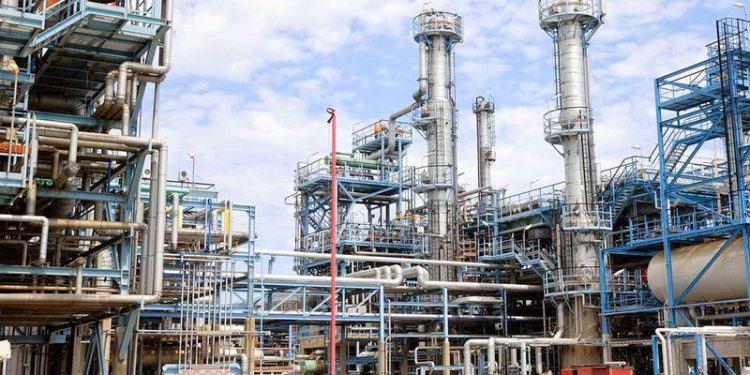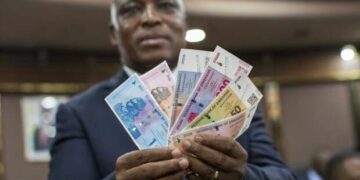End of oil bonanza casts shadow on Nigeria’s FDI appeal
A wave of divestment in the oil and gas industry has been hindering Nigeria’s economy as foreign investors withdraw from the country’s main source of growth and capital.
Foreign investment now accounts for just a fraction of Africa’s biggest economy, with policy uncertainties and security issues also weighing on the mind of overseas investors. A flourishing tech scene has been somewhat countering this slump, although the same array of factors have been preventing investment to fund tech start-ups in cities other than capital Lagos.
Oil companies on the run
Global oil producer, Shell, is among the big producers that recently kick-started a disinvestment drive from its oil assets in the Niger Delta.
Hard hit by the oil spills that have resulted in lawsuits from affected communities in and around the Niger Delta, and insecurity that has culminated in pipeline sabotages, Shell is currently in talks with the government to divest all of its operated joint venture (JV) licences held by its subsidiary Shell Petroleum Development Company (SPDC), including a 30% interest in 19 oil and mining leases (OMLs).
Other large international oil companies disinvesting from Nigeria include Total, which said in January that it had “completed the divestment of its 10% interest in onshore Oil Mining Lease (OML) 17 to the Nigerian company TNOG Oil & Gas. Total operated under a joint venture partnership with Shell and Italian firm Agip Oil Company in the OML 17 — both of which are also disinvesting from the project.
Gail Anderson, research director for sub-Saharan Africa at Upstream, believes that there are “not many” takers for the “high-cost, emissions-intensive assets” that are being disposed of by large oil producers in the Niger Delta. The impact of this on the country’s foreign direct investment (FDI) will likely persist beyond 2021.
International oil companies have been “selling assets mostly in shallow waters” under a process “supported by the federal government to support local producers that were perceived as better able to deal with insecurity issues, in particular in the Niger Delta”, Aurélien Mali, lead analyst for Africa at ratings agency Moody’s, tells fDi.
FDI slump
Recently published data from the National Bureau of Statistics shows Nigeria’s overall capital inflows declining to $875.62m in the second quarter of 2021, down from $1.91bn in the first quarter of 2021.
Portfolio investment was the largest contributor, accounting for almost 63% ($551.3m) of total capital inflows during the period under review. FDI inflows accounted for just 8.9%, or about $77.97m of the total capital imported by Nigeria in the second quarter of 2021.
Chiedza Madzima, the head of operational risk at Fitch Solutions, says that this marks “the lowest level” for Nigeria in 11 years. The country thus carried the weak investment momentum it experienced in 2020 into 2021.
Patrick Curran, an economist at emerging markets advisory company, Tellimer, tells fDi that “Nigeria followed the emerging markets trend, but from a lower base, with FDI falling marginally from 0.7% in 2019 to 0.55% of gross domestic product (GDP)” in 2020.
Mr Curran believes that FDI inflows into Nigeria “have been anaemic”, and worse still, “given Nigeria’s structural constraints, FDI is likely to continue lagging its emerging market peers for the foreseeable future”.
And there are further challenges: “Weak FDI has increased Nigeria’s reliance on more volatile sources of capital, like portfolio investment, to fund its balance of payments,” Mr Curran adds.
According to the IMF, Nigeria now ranks “below Ethiopia and Kenya” in terms of FDI contribution to GDP. A spokesperson for the IMF tells fDi that “policy uncertainties, particularly with respect to the exchange rate” are a contributing factor to Nigeria’s low FDI performance, especially this year.
Read This: StanChart posts Ghs 385m profit for Q3 2021; increases CAR to 26%
Tech start-ups brighten Nigeria’s FDI prospects
There is, however, an opportunity for Nigeria to salvage its declining FDI performance and the resultant contribution to GDP through further propping up venture financing flows into its tech start-up sector. In the nine months to September, Nigerian tech start-ups have attracted $1.2bn in venture capital, taking up 44% of all inflows into the African tech start-up scene, according to data from Big Deal Africa.
The “importance of the tech sector, which could help diversify the economy”, is emerging faster, notes Jan Lammersen, an economist at FocusEconomics.
Chipper Cash, OPay and Interswitch are among Nigerian tech start-ups that have sprinted to $1bn valuations as a result of attracting international venture financing. Further global venture capital inflows into Nigeria’s IT sector, however, still “require investment in education and digital infrastructure, a more predictable business regulatory regime, policies to drive demand for broadband services, and improved access” to finance, particularly away from capital city Lagos, where the tech scene has yet to make a mark, he adds.
Opportunities and interventions
Other international trade and foreign exchange experts, such as Dimieari Von Kemedi, the CEO of Angala Fintech, underscore the need for the Nigerian government to “enhance ease of doing business and improve security and infrastructure” capacity to better attract FDI.
Greenfield investments in the non-oil sector, such as Ariel Foods’s $66m investment into the construction of a manufacturing facility in the Lekki Free Trade Zone are touted as brightening prospects for FDI diversification away from the oil sector.
It will take more than that for the country to secure investment and growth in a post-oil future.








